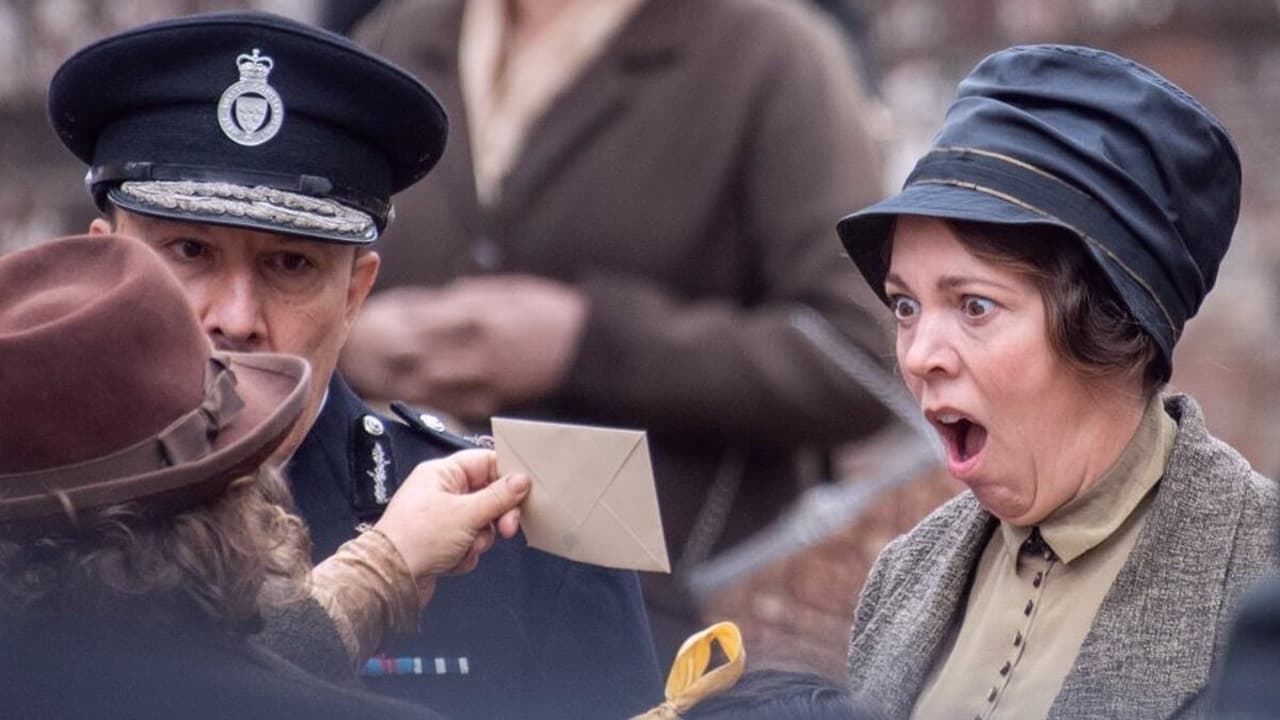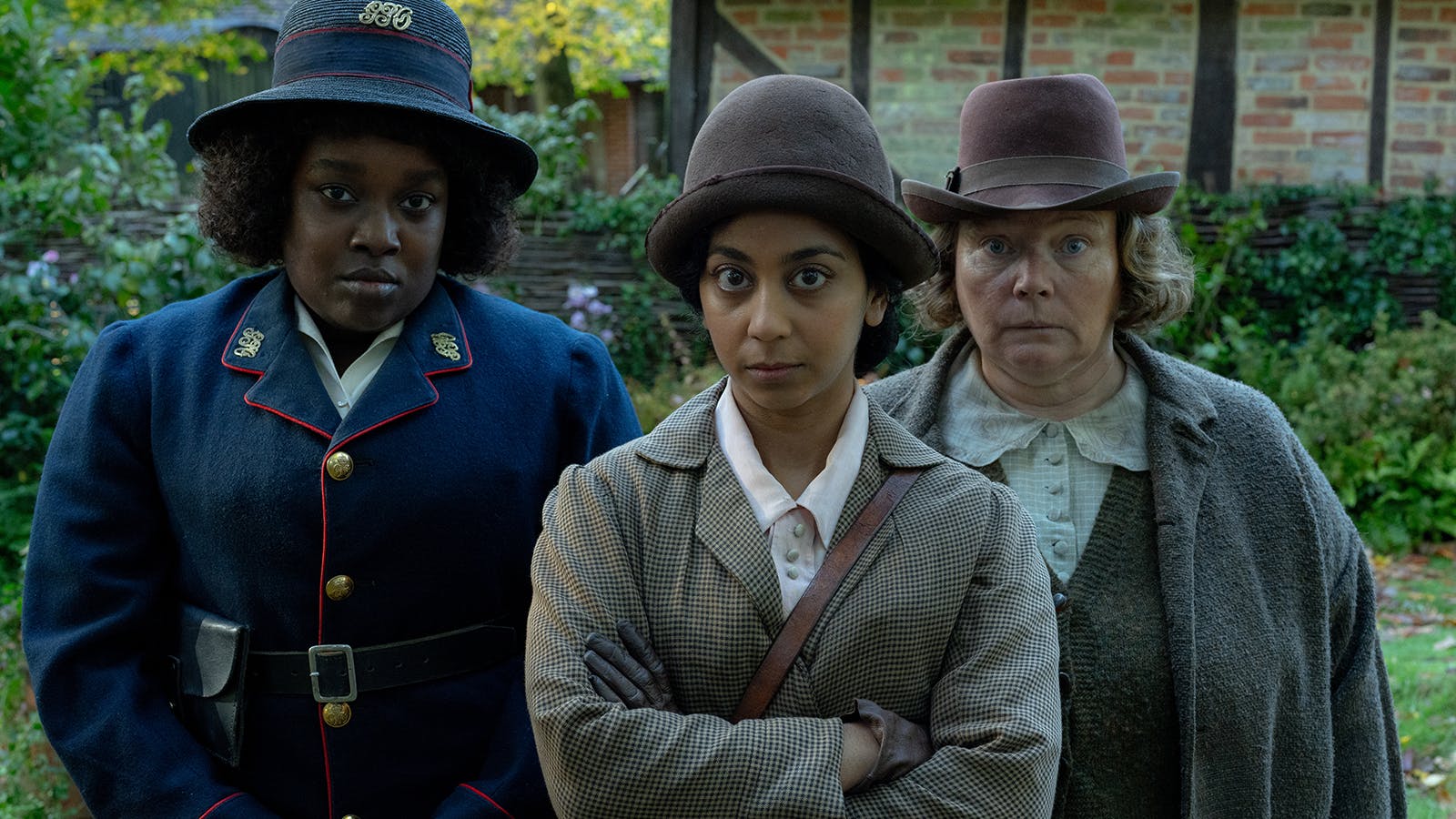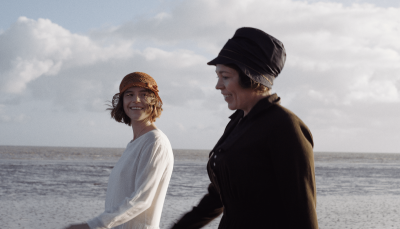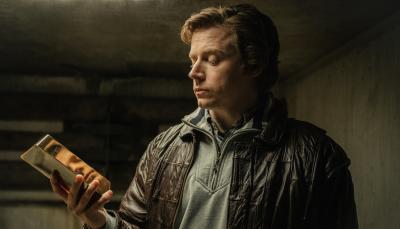'Wicked Little Letters' is Playfully Uninteresting & Likes It That Way
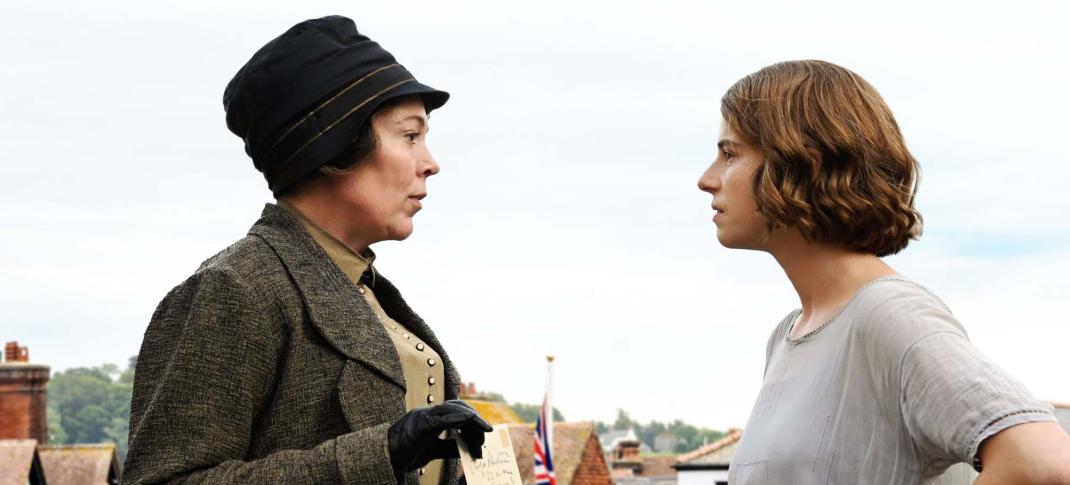
Olivia Colman as Edith Swan waves a poison pen letter at Jessie Buckley as Rose Gooding, its suspected author in 'Wicked Little Letters'
StudioCanal
Move over Anne Hathaway and Jessica Chastain; there’s a British version of Mother’s Instinct’s period drama “Mother-off” – with equally beloved national treasures Jessie Buckley and Olivia Colman. Even better, they’re swearing the whole gosh-flipping time; Wicked Little Letters tells the surprising story of the Littlehampton “poison pen letters,” where a spinster suspects her poorer neighbor of anonymously sending vulgar and aggressive hate mail in 1920s Sussex. In the film, Edith Swan (Colman), a strictly religious live-at-home daughter of the overbearing conservative Edward (Timothy Spall), is instrumental in accusing her crass Irish immigrant neighbor Rose Gooding (Buckley) of sending the libelous and harassive post. As prejudice leads the police investigation towards injustice, it’s down to Women Police Officer Gladys Moss (Anjana Vasan) to unveil the true culprit.
Wicked Little Letters riffs on the modern-day phenomenon of online hate mail, where death threats and abusive messages can be sent with little consequence to public figures, reflected in the marketing tagline “Be careful what you post.” But the film’s modern-day resonance still comes from a real story, with characters based closely on real people – as the movie tells us as it starts, more of it is true than we’d think.
All the talent seems lined up for a bubbly and charming romp, but Wicked Little Letters feels like it’s been made in a sterile British comedy-drama lab. Yes, the film is full of cursing, with F-words and C-words dropped at hysterical rates, but it’s not precisely provocative on a cerebral level. When foul-mouthed Rose (it’s nice that Buckley gets to use her native Irish accent) speaks in a near-constant barrage of effing and jeffing, there’s the sense that the ideal audience member will find this all titillating rather than challenging or upsetting – as in, there’s no expectation that anyone’s going to be shocked. After all, it’s a period drama – people didn’t swear back then!
Perhaps Wicked Little Letters is best enjoyed with a slightly chilled wine, three or four similarly titillated friends, and a handful of giggles—all the power to people who want that experience. But even though the film approaches the divisions of class reflected in contemporary uses of language, nothing subversive in the film’s form and content convinces us it understands them.
The film is playful in an uninteresting way – compressing a nuanced, thorny story of classist abuse into the cheeky but restrained boundaries of a modern British comedy while gesturing at a progressive perspective in unremarkable ways. Wicked Little Letters may drop some truly expletive words, but the meek delivery suggests its heart isn’t in it. The movie suffers from a severe tone problem, as if the deepest resonance of its true story is struggling to be heard within the British romp formula.
There are tons of comic relief characters – from bumbling chauvinist policemen (Hugh Skinner) to livestock farming amateur detectives (Joanna Scanlan, we have got to get you in something good soon). But Edith’s story is also about parental abuse, the type that was common behind closed doors in deeply conservative English areas throughout most of the 20th century. The intense displeasure at seeing Edith’s father act cruelly and viciously is confused by Moss et al.’s weak comedic banter and ad-libbing – which takes up more of the film than you’d want from a Colman v Buckley battle.
Moreover, the progressive angle that director Thea Sharrock and writer Jonny Sweet have taken on the true story feels incomplete. Class, religion, and xenophobia all naturally play into the treatment of Rose at the hands of the hostile town (Rose Gooding’s Irishness was invented for the film). However, Wicked Little Letters chooses to ignore the racial dynamics that would exist as a consequence of its colorblind casting.
In the film, Moss is a woman of color; meanwhile, Rose’s status as a British outsider is commented on (sometimes by a Black character). The film only highlights the sexism that Moss faced at the time and wilfully ignores how this is now complicated by her Indian heritage. Vasan is a strong actor, and the film is better for her casting, but the thoughtlessness that Wicked Little Letters applies to its non-white characters is revealing.
On top of being misogynistic, 20th-century Britain was incredibly racist, and Wicked Little Letters’ refusal to complicate its story beyond surface representation is a bit damning of the lightweight British comedy machine. After all, these ugly realities would complicate the titillation that the film would rather entertain itself with – but isn’t this at its core a story about English ugliness cresting the surface of polite society?
Wicked Little Letters opens in limited release in the U.S. on Friday, March 29, and goes into wide release one week later on Friday, April 5, 2024.

